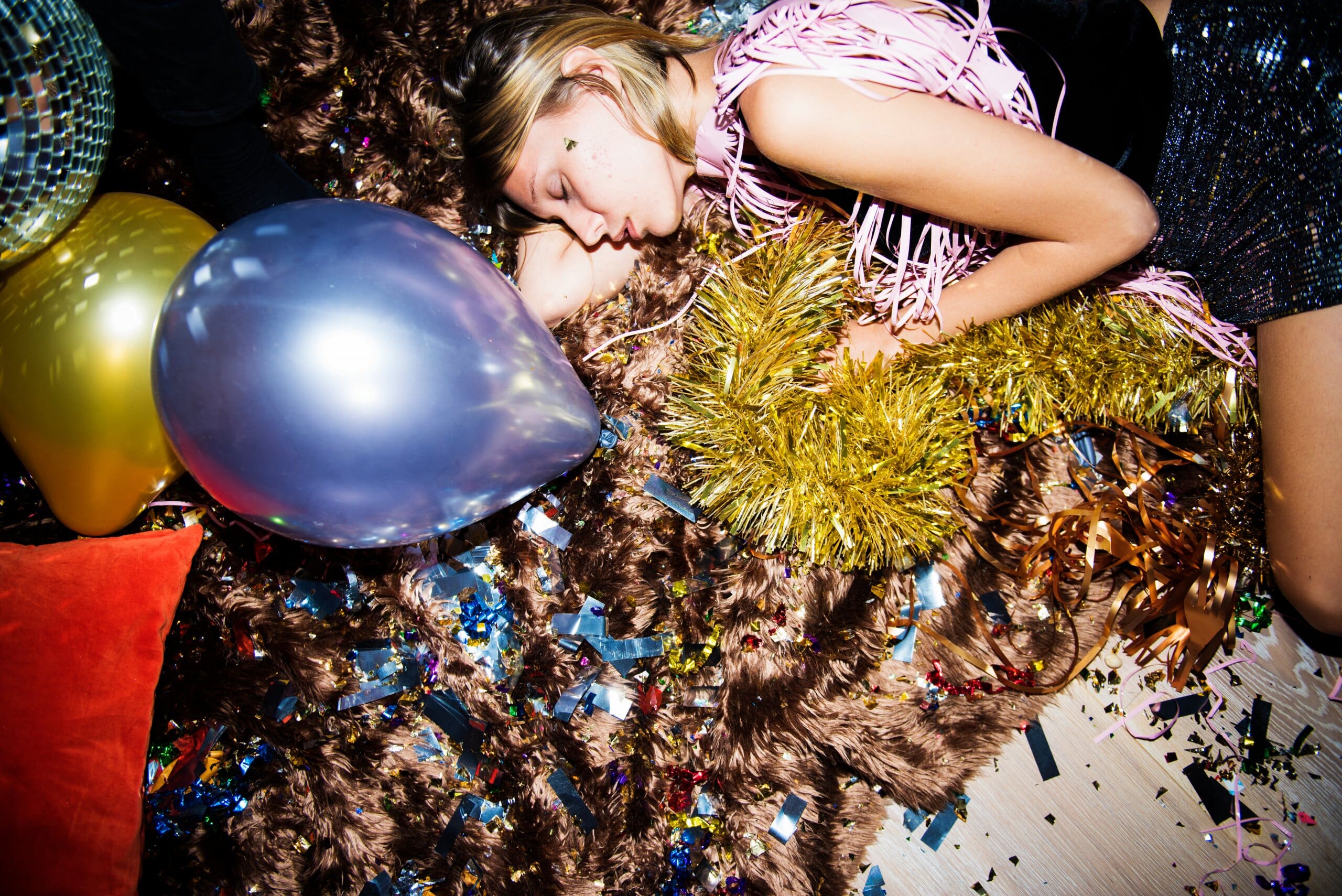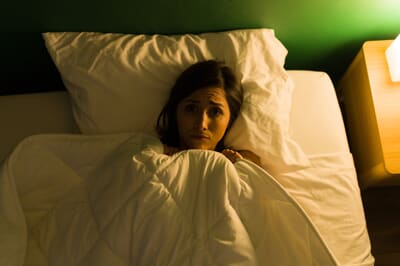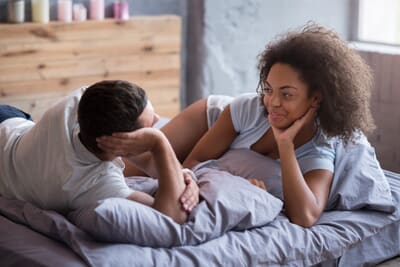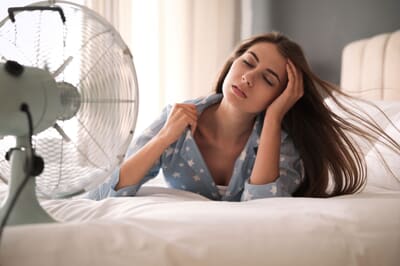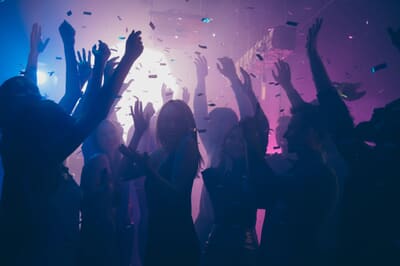It’s safe to say that even the mildest hangovers can leave you feeling awful. Thirst, nausea and a serious headache are just some of the symptoms you might recognise, with the severity of them worsening with how much you’ve had to drink the night before.
But what’s the best way to avoid a hangover? Can you even avoid them at all after a night on the booze? To help, we’ve shared what causes a hangover and answered the age-old question of why they get worse with age.
Better yet, we’ll also reveal our top tips for preventing a hangover on those nights when one is bound to hit!
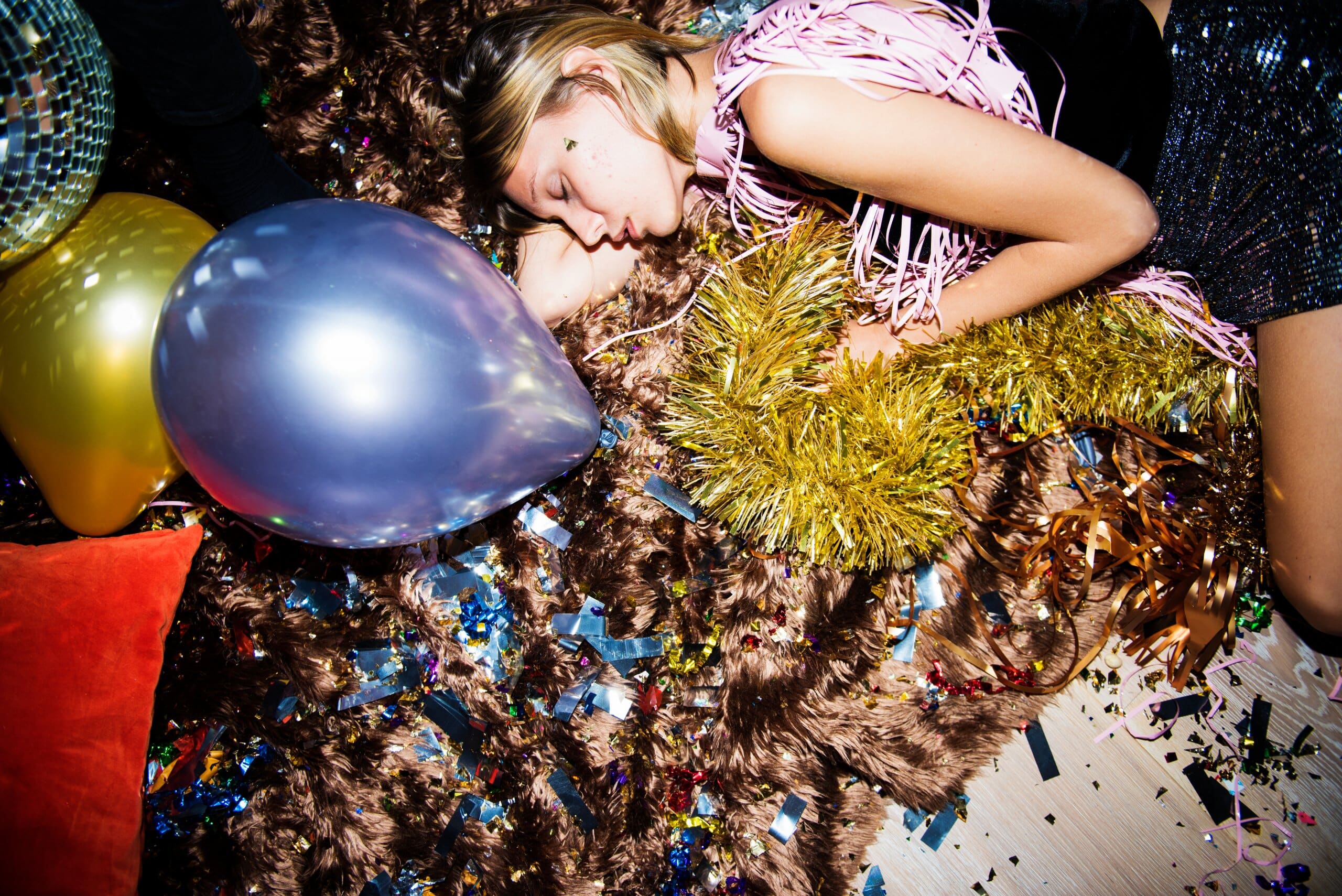
What causes a hangover?
If you’ve experienced a hangover, you’ll know the common symptoms are usually:
- A feeling of fatigue
- Feeling nauseous
- Being dehydrated and, therefore, thirsty
- Feeling sensitive to light and sound
- Having a headache
- Feeling anxious, or overthinking
But what causes these symptoms? During the fermentation process of alcohol, a compound called congeners are formed. Congeners are what gives your alcohol a certain taste and flavour, and also contribute to your hangover the next day.
The amount of congeners in alcohol can vary, depending on what amount of sugars, yeast etc. manufacturers use during the fermentation process. The more distilled a spirit is, the less congeners you’ll find in it.
This is why drinks such as red wine and brandy - which are high in congeners - give you a worse hangover the next day, compared to vodka or beer, which have lower levels of congeners.
Why do hangovers get worse with age?
Remember the days of being able to hit the town multiple nights in a row? Or heading to work (relatively) fresh as a daisy after a late night drinking? Those days might be over now if your early 20s are a thing of the past.
The reason hangovers get worse as we age is due to your liver not being able to break down alcohol as quickly. The enzymes in your liver break down alcohol by turning it into acetaldehyde, the toxin responsible for many of your hangover symptoms. Then, your liver breaks it down again into a non-toxic acetate.
However, as you get older, your liver can’t do this as fast. So, the acetaldehyde that contributes to your hangover sticks around for longer. It gets pushed into your bloodstream and causes you to feel worse for longer.
Sleep expert shares seven tips for preventing a hangover
Unfortunately, the best way to avoid a hangover is to not drink any alcohol, ad it’s the only guaranteed way to stop any symptoms. You can try to stop a hangover the night before as much as you can, but the effects start building up after your first drink, making it hard to stop one in its tracks completely.
However, the only surefire way to avoid a hangover is to not drink any alcohol. However, Martin Seeley, the Sleep Expert and CEO at MattressNextDay, has shared seven ways you can make your hangover much more manageable.
1. Say yes to that late-night kebab
Eating after drinking can help to stabilise your glucose levels. Fatty foods can actually stop your body from absorbing too much alcohol. That's why eating a big meal with red meat (like a burger) before going out drinking is ideal, but a post-party kebab is okay for preventing a hangover, too.
2. Eat pomegranate seeds before you head out on your night
Alternatively, if a kebab isn’t your kind of thing, you could eat pomegranate seeds before your night out. Pomegranate juice is high in antioxidants and protein, which helps to heal your muscles and reduces inflammation, preparing you for a night of heavy drinking. With three times more antioxidants than green tea, it’s certainly worth a try.
Or alternatively, if you’re particularly well-prepared, drink a smoothie made of leafy greens and pomegranate seeds before you head out. Packed with nutrients and vitamins, this will prepare your body for having to restore its levels of nutrients later. Staying hydrated is one of the best ways to prevent a hangover too, so if you pair your food with a glass of water, you’ll be killing two birds with one stone!
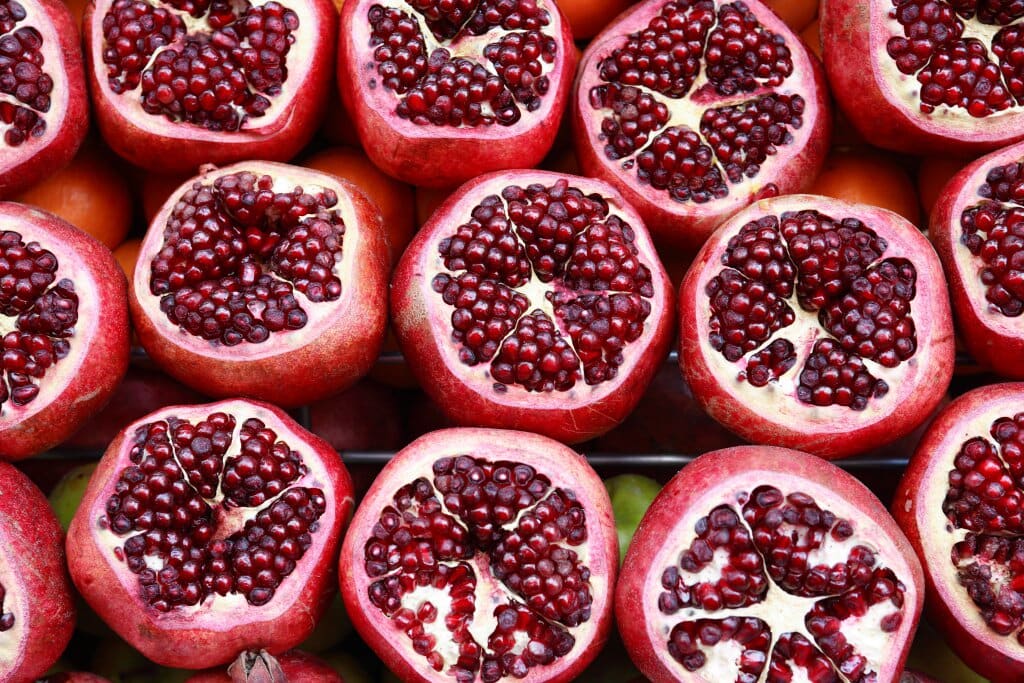
3. When you’re out, mix your vodka with orange juice
Did you know that orange juice can actually neutralise congeners in vodka, which contributes to your hangover? Vodka itself actually has low levels of congeners compared to brandy or rum, so we'd recommend a classic vodka orange (or as it’s sometimes known, a ‘screwdriver’) to avoid those horrible symptoms in the morning.
You should also avoid alcohol high in congeners. For example, research papers on bourbon whiskey show that it has 37 times more congeners than vodka, so don’t be ashamed to order a fruity drink if you don’t like the taste of whiskey!
4. Steer clear of fizzy mixers
Research in the Journal of Forensic and Legal Medicine has shown that carbonated mixers like lemonade and Coke can get you drunk much more quickly. This is because mixing your alcohol with carbonated drinks increases the rate of alcohol absorption in the blood, thanks to the gas in the bubbles.
If you want to avoid a hangover before you go to sleep, try mixing your alcohol with fruit juice, or water and a flavoured cordial. You might thank yourself in the morning!
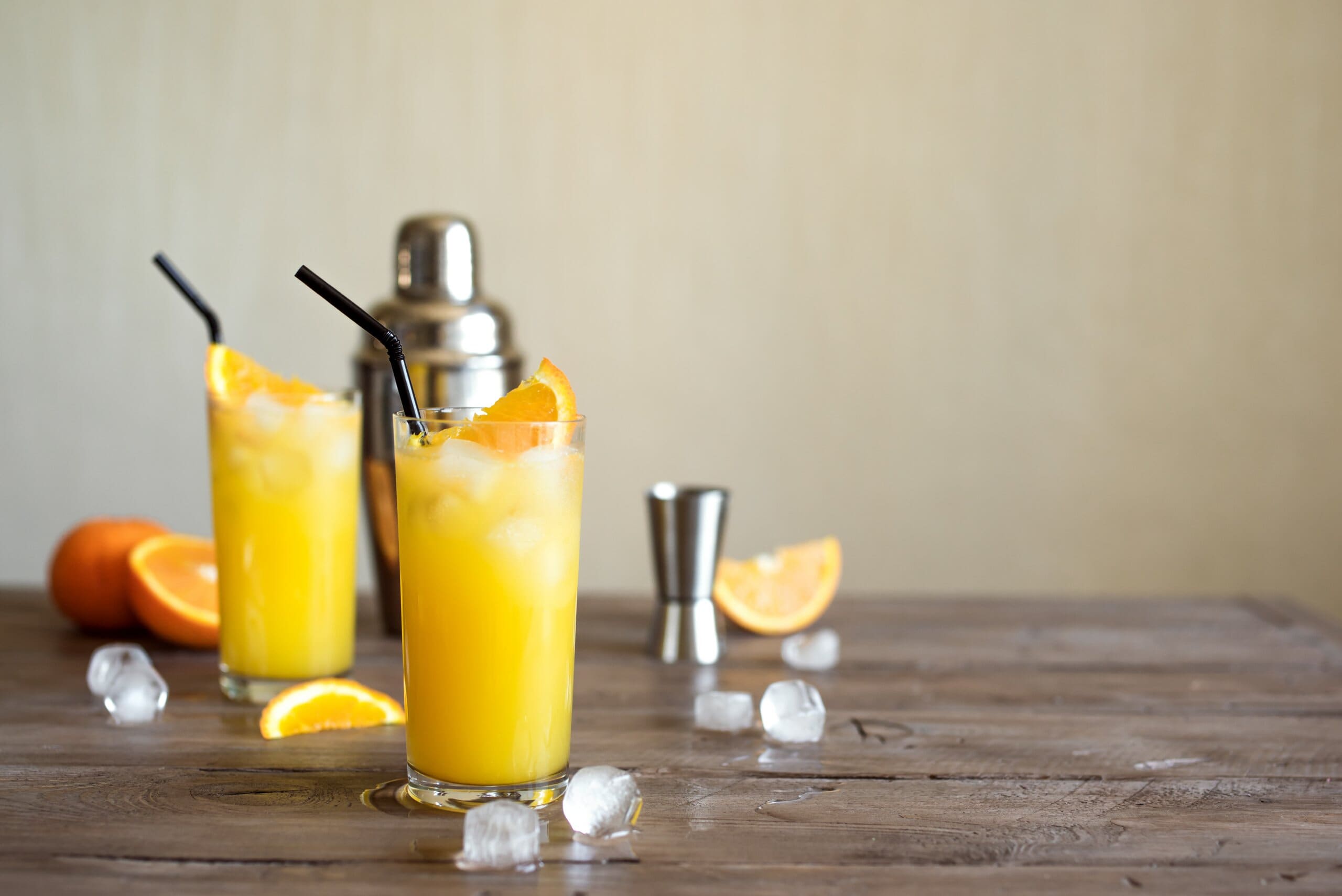
5. Pace yourself and opt for a non-alcoholic option
The severity of your hangover will be directly related to how much you’ve had to drink. There’s no shame in pacing yourself, especially if you want to avoid feeling awful the day after. Studies show that only 20-25% of people who drink are hangover-resistant, so if you’re not one of them, you should slow down your alcohol intake.
If you feel uncomfortable without a drink in your hand, or if your friends are all drinking around you, try ordering a plain lemonade or a similar soft drink. If anyone asks, you can say there’s alcohol in it, and you’ll still feel included!
There are plenty of low or non-alcoholic drinks out there. If you ask for your bottle of non-alcoholic beer to be poured into a pint glass, those around you will be none the wiser.
6. Order your drinks with ice so you need to go to the toilet less
Staying hydrated is absolutely essential for preventing a hangover. It might not be news to you that one of the main symptoms of a hangover is thirst, so make sure you’re staying topped up with water as you’re drinking.
Alcohol causes you to urinate more, and generally dehydrates you by causing your body to produce a hormone called Vasopressin. If you don’t think you’ll remember to drink a glass of water in between alcoholic drinks, order your drinks with ice.
Sip your drink slowly, and as the ice melts, it will dilute your alcohol. This will increase the time between refills, as well as giving you a little extra hydration.
If you can, however, try to drink water in between alcoholic beverages. Don’t chug loads of water when you get home, though, as your body won’t process the drink as easily, causing more damage than good. One or two glasses of water when you get home is ideal, and keep a glass near your bed for when you wake up thirsty.
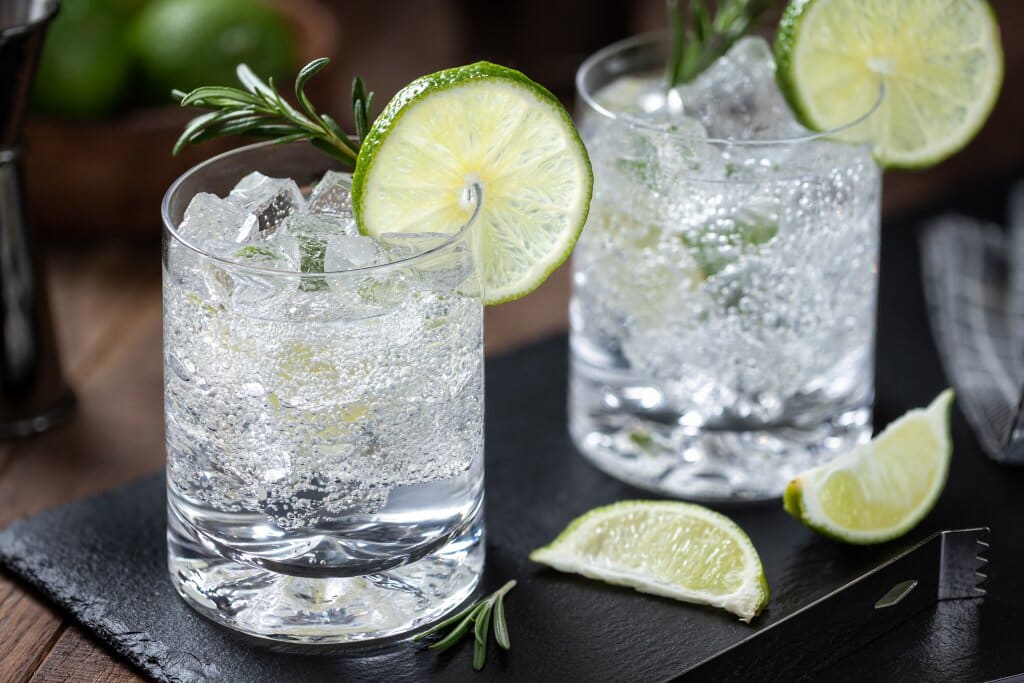
7. Try a supplement - but don’t take ibuprofen
Evidence suggests that dehydration is not the only cause of your hangover - inflammation plays a big part, too.
While you might be tempted to reach for some ibuprofen to prepare yourself for the inevitable headache that comes with a hangover, taking medication such as ibuprofen or aspirin can irritate the lining of your stomach and worsen your symptoms.
A study on B Vitamins and Zinc has shown that they can help alleviate the symptoms of hangovers. Red meat is full of Zinc - another reason to enjoy a takeaway after your night out.
Research also suggests that Red Ginseng can prevent a hangover, due to its anti-inflammatory properties. A Korean herbal remedy, Red Ginseng boosts your immune system too. You can find it in capsule form or as a tea form in many health food shops.
How to sleep when hungover
While most of us find it easier to get to sleep when we’ve had a few drinks, the actual quality of our sleep is affected by alcohol. You can drift off in no time, but expect your REM sleep to be interrupted, which can make you feel drained in the morning.
Most interruptions when sleeping drunk stem from dehydration, so be sure to drink a healthy amount of water between glasses of alcohol to keep your sleep schedule strong.
Alcohol can also cause breathing irregularities while you sleep. While it’s hard to keep on top of how you breathe when you’re not conscious, you can try to improve your air circulation by sleeping in a well-ventilated room and sticking to a relaxing routine before you sleep. You can even try preparing your room to be as comfy as possible before going out, so you can settle in to a great night’s sleep as fast as possible. Make sure to avoid smoking before bed too.
Does sleep help a hangover?
Getting a good night’s sleep helps with your hangover immensely. Sleep doesn’t just stop tiredness; it regulates your whole body. It’s crucial for a functioning immune system, strong mental health, and more. That’s why it’s so important to rest well after drinking alcohol – your body can regulate the toxins out of your system and keep you in good shape. It will also help to combat hunger and anxious thoughts in the morning, often referred to as ‘hangxiety’.
Why do we get ‘hangxiety’?
Hangover anxiety - or ‘hangxiety’ - is a common hangover symptom that causes you to feel intensely anxious after a night of drinking. Around 12% of people who drink experience this debilitating anxiety the next day, and it can make you want to quit drinking for good.
Alcohol is a depressant, suppressing your central nervous system. If you’re used to drinking a lot, your body might go into ‘fight or flight’ mode as the alcohol leaves your body, causing increased levels of anxiety.
Alcohol also affects the GABA (Gamma-aminobutyric Acid) in your brain, which usually produces a calming effect. Excessive alcohol intake depletes levels of GABA in your brain, promoting anxiety and stress, even leading to panic attacks.
Another cause of hangxiety is if you’ve used alcohol as a way of being more social. After the confident effects of being drunk have worn off, you might be left dreading what you said or did last night.
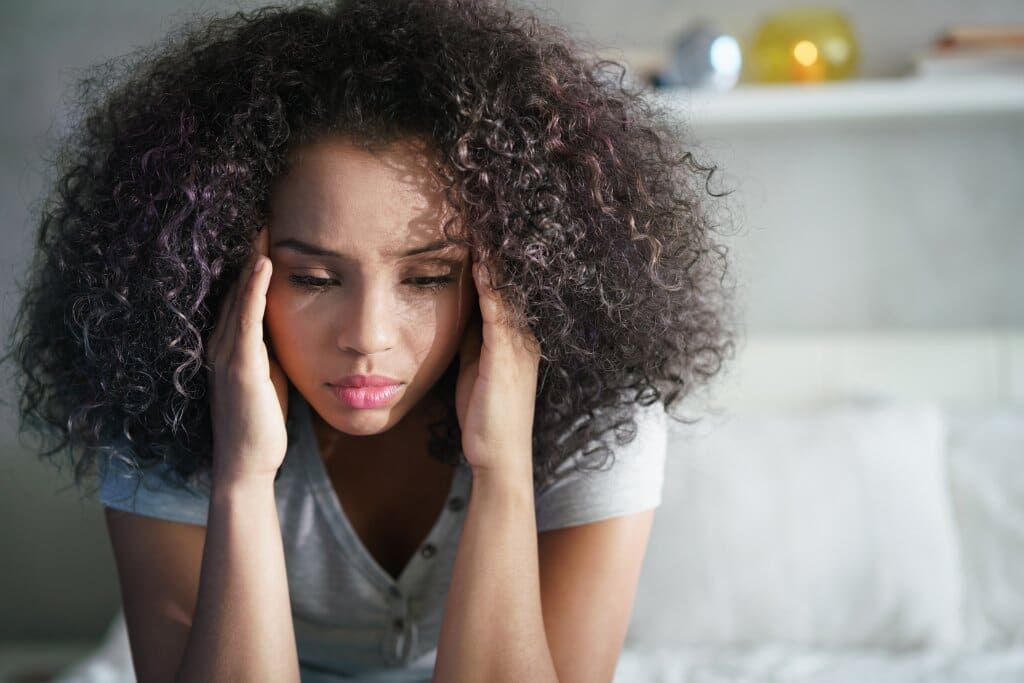
How can you prevent feeling anxious after drinking?
Like with preventing a hangover, the only definite way of preventing hangxiety is to not drink at all, but there are some things you can do to lessen that anxious feeling after drinking.
Manage your physical symptoms
Rehydrate and get some nourishment. If your body isn’t feeling well, your mind won’t be able to tackle your anxious thoughts. Tackle your thirst by sipping water throughout the day and eat light, nutritional foods.
Getting some more sleep can also help you prevent hangxiety, letting your body repair itself while your mind relaxes.
Meditation and mindfulness
Deep, slow breaths can help you get on top of your racing thoughts and panicked breathing. Our article on breathing techniques to help you sleep has tips that will also help you calm your breathing down, helping you feel less panicked.
You can try meditation in whichever position is most comfortable for you - you don’t have to sit in a classic yoga pose, cross-legged on the floor. You can stay wrapped up in bed, but simply close your eyes and try to focus on your body and surroundings, letting thoughts come and go.
Talk to your friends
The likelihood is that you didn’t do anything that embarrassing last night. And even if you did, it’ll make a funny story one day! Talking to your friends will help you put the night into perspective, as well as lightening the load of your anxiety.
What not to do when you’ve got a hangover
If you’ve found this post too late and you’re suffering from a nasty hangover, you might be searching for ways to ease your symptoms. Don’t be fooled by the myths surrounding hangover cures - the only real way to prevent a hangover is to not drink in the first place! There are plenty of things you might be tempted to try to remedy yourself, but here are the most important things to avoid while you try to get back to normal.
DON’T drink the hair of the dog that bit you
You might’ve heard of the phrase ‘hair of the dog’ to reference having another alcoholic drink the morning after. The idea is that by keeping your alcohol levels up, your body won’t go into ‘hangover mode’ just yet.
While you might get some initial mild relief from your hangover, you’ll eventually feel much worse symptoms once the effects have subsided. Some scientists also say that this method will lead to alcohol dependance in the long run.
Never rely on coffee
If you usually drink a lot of coffee, you might think your usual caffeine buzz will kick your hangover to the curb. However, while a cup of coffee might initially wake you up, it will make your nausea and particularly your anxiety much worse.
If you often suffer from anxiety when hungover, steer clear of caffeine, as it will raise your heart rate and enhance the physical symptoms of your anxiety.
Don’t force yourself to throw up
Making yourself sick will remove some of the alcohol from your stomach, but it’ll also remove everything else, too, making you even more dehydrated and malnourished.
Forcing yourself to throw up can also put strain on your oesophagus, potentially causing serious damage. It’s likely the alcohol will already be in your bloodstream, so making yourself sick won’t make any difference to your hangover.
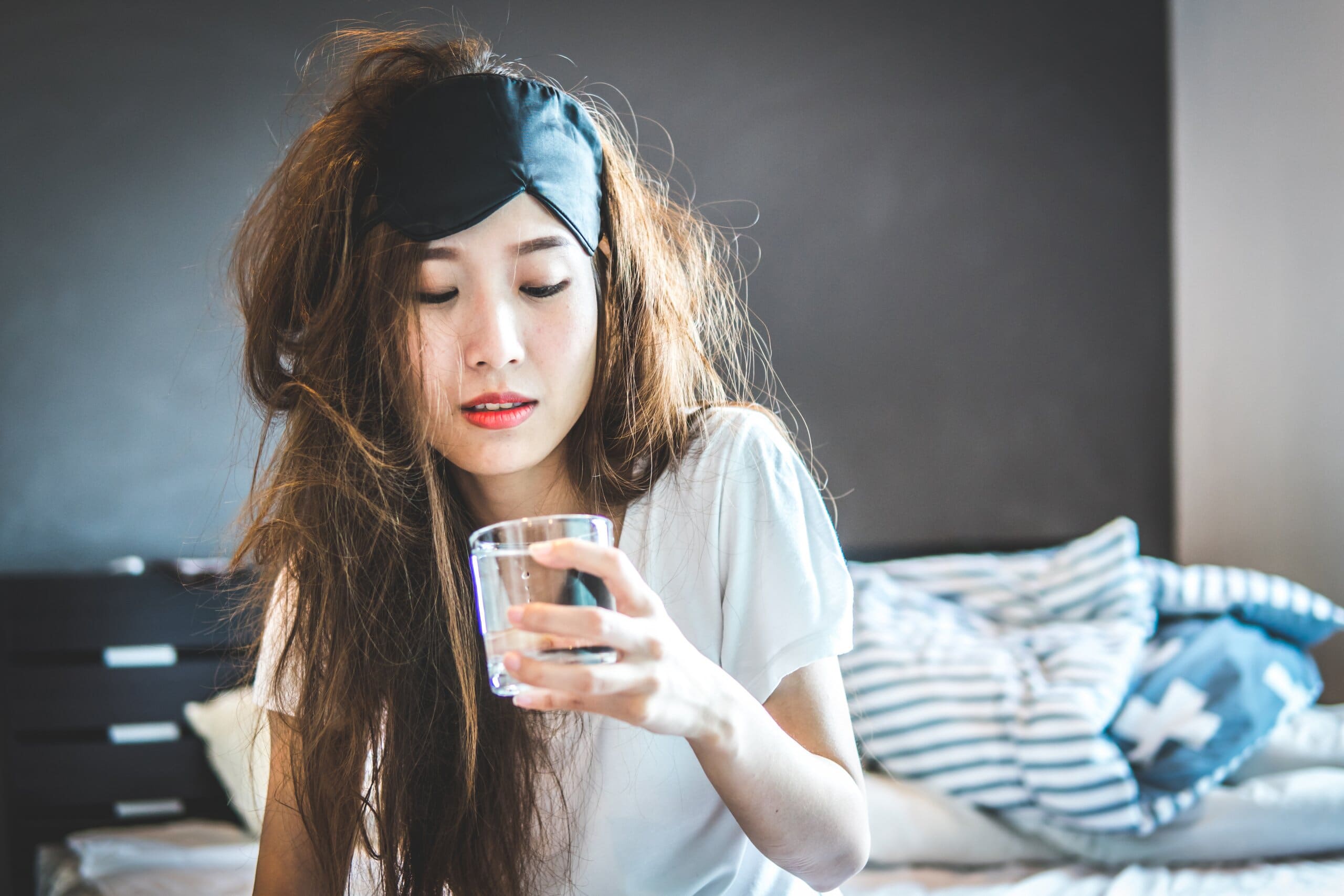
Hangovers are a fact of life for all of us who drink alcohol, but hopefully our guide has taught you how to deal with them more effectively. If hangovers are affecting your ability to get to sleep, have you considered changing your bed arrangements? It’s hard enough getting a good night’s sleep after drinking, but a bed that’s in poor shape certainly won’t help.
Why not browse our collection of quality mattresses and bed frames, with flexible delivery options to suit you? Alternatively, you can read our other guides to find new ways to improve your sleep quality.
